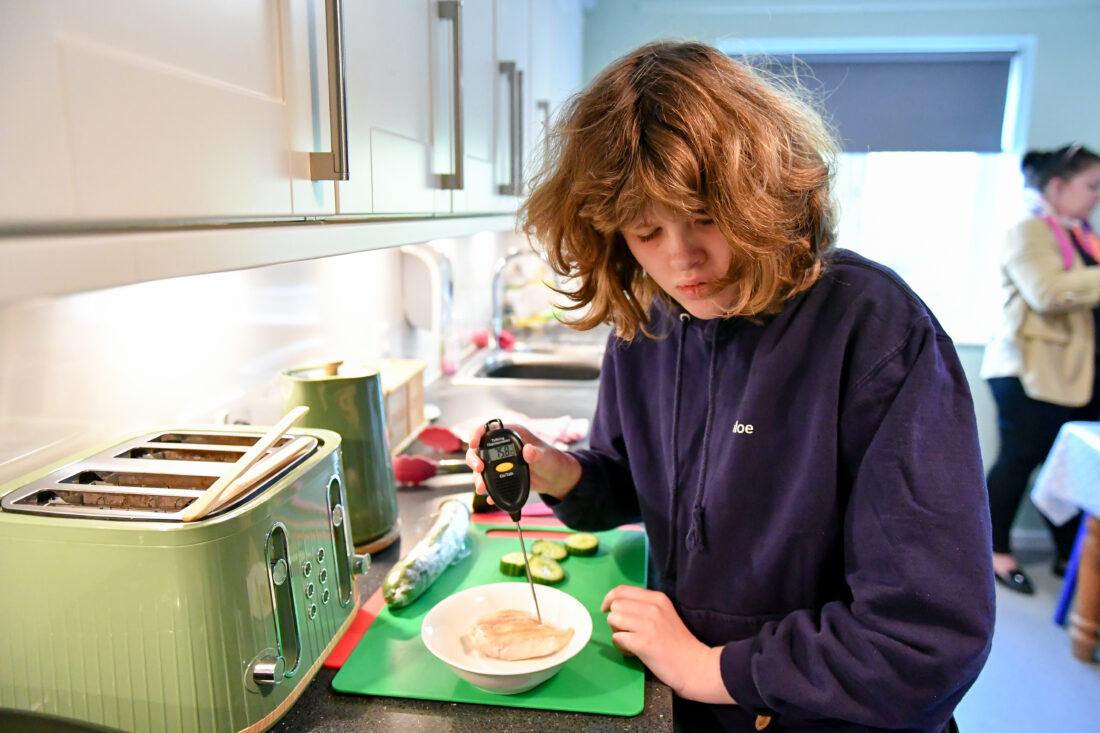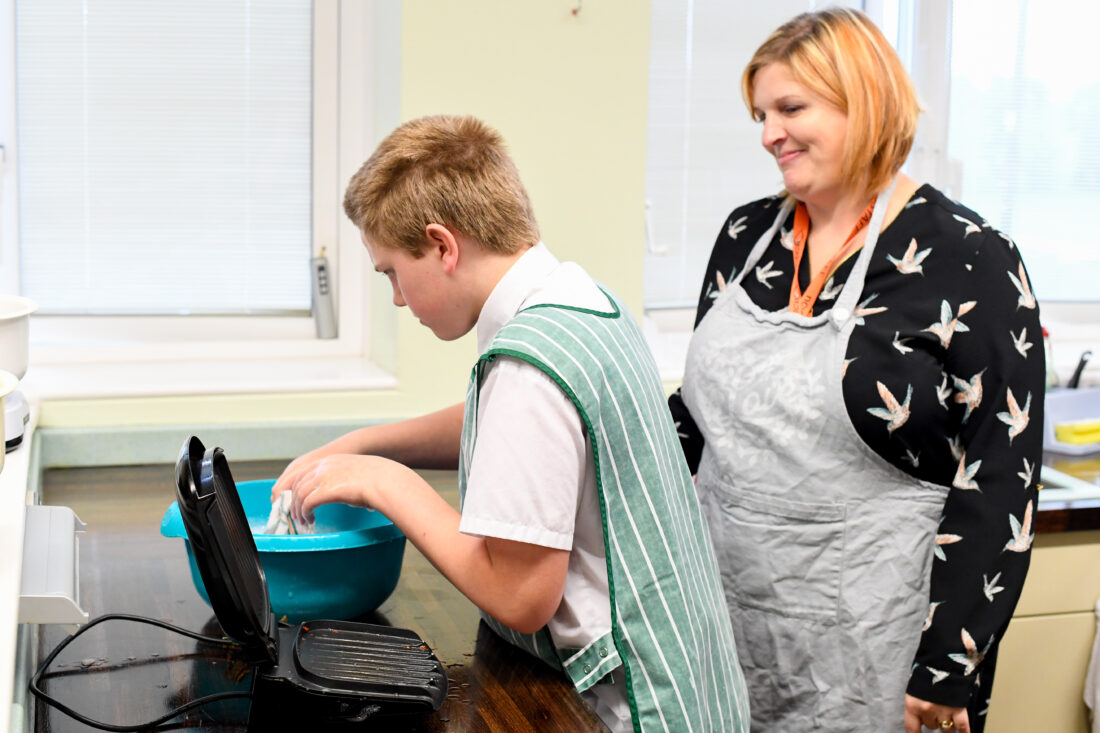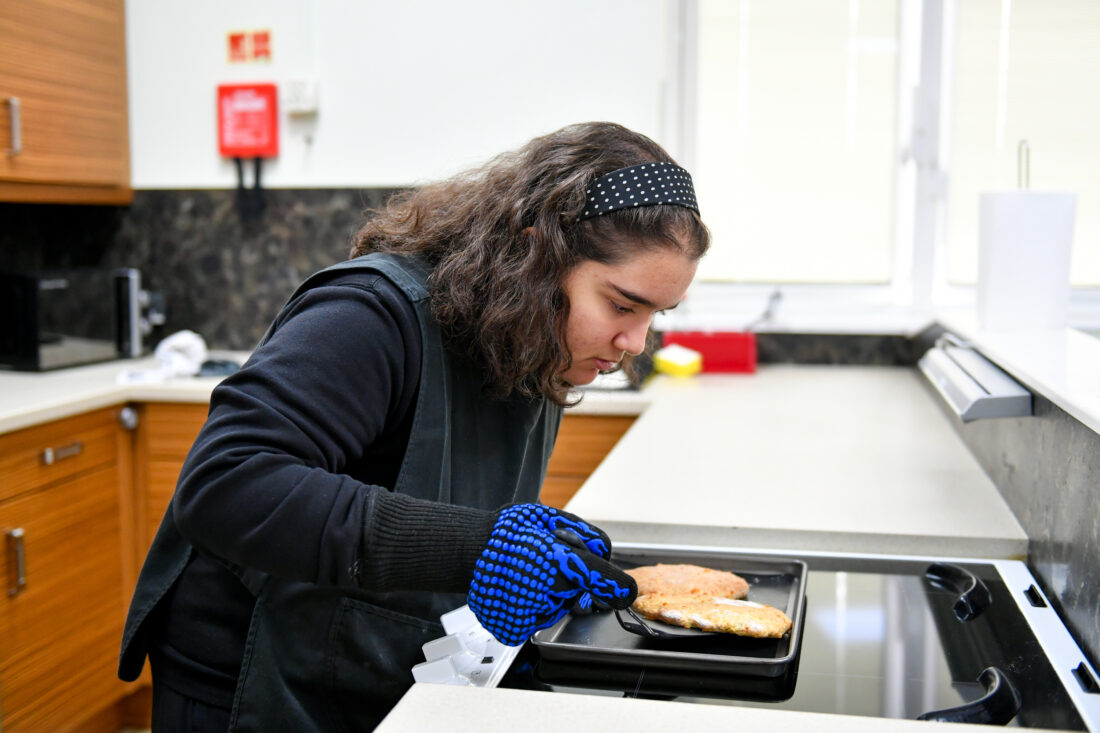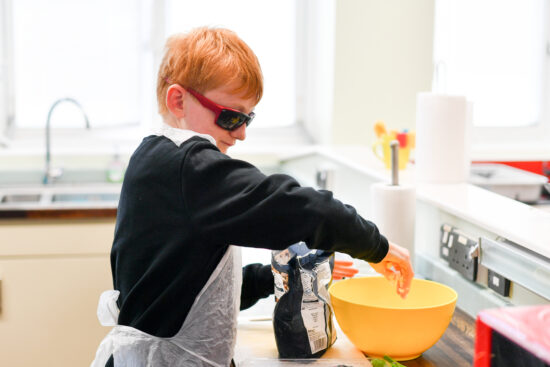Independent Living skills (ILS) are those daily activities that are required to take care of oneself, family and a home.
This involves the teaching of processes and methods that those with sight have observed and often take for granted. There is research to show that those who master the key skills of ILS will be more successful in other parts of their lives.
At NCW, ILS is a timetabled part of the specialist curriculum for all students. From the students’ Education, Health and Care Plans and observations within the classroom and care environment, across campus targets are set to provide targets to support the student across the waking day.
The aim is to introduce, develop and apply a range of age appropriate skills, which will enable learners to participate fully in everyday living from the moment they arrive. The ultimate aim being transitioning into further education as independent citizens. As a department the is key to have parental support to aid consisistency and confidence in methods to ensure that tasks are managed safely and independently.
Students are taught in small groups by a specialist team. There are programmes of study offer differentiated outcomes for each student where appropriate.



Key Stage 3
An exciting practical skill focused scheme has been developed to embed life skills, safe working practices and food knowledge. As well as teaching nutrition, pr
eparing and cooking food, students are taught laundry and clothes care, first aid, the use of technology to aid identification and personal skills such as signature development and methods for money management.

In Year 7, it is important to embed life skills such as getting breakfast, organisation, weighing and measuring, and core knowledge about food groups.
In Year 8 the focus is about safe practice in the use of equipment, further developing and applying core skills and knowledge acquired in Year 7. During Year 8, the laundry process is reviewed and students investigate methods to sort, wash, dry and organise clothing. Bed making is introduced. Unit award accreditation in the key themes of ILS will be achieved by some students.
In Year 9, the emphasis is on working with equipment with the additional complexity of following a recipe or using of two pieces of equipment simultaneously. During the year, students will also learn about the use of internet shopping, online banking and the facilities a bank offers, plus continually developing and applying skills developed in previous years.
Key Stage 4
In Year 10, students continue to develop and extend their range of ILS with the focus on healthy living and being informed about food choices. All students will be given the opportunity to achieve accredited courses, which could enable employment within the community, and gain skills that can be identified for CVs and applications for further education.
For example, students may achieve a Level 1 Food Hygiene Certificate.
Students are given specific briefs to develop a range of recipe dishes that can be utilised within the sixth form residential setting where students are supported to prepare their own meals at weekends. Unit award accreditation in the key themes of ILS will be accredited.
In Year 11, all students will follow the BTEC Level 1 or Level 2 Home Cooking course. This provides a selection of breakfasts, snacks and meals that they will be able to produce independently, preparing them for transition into the sixth form.
Sixth Form
This is a personalised programme focused on the needs of the individual referred to as Activities for Daily Living (ADL).
Timetabled sessions are attended within school and occasionally within the residential area to aid orientation or the application of a specific skill. As skills develop, targets are reviewed and revised to ensure that the student can manage their clothes care, food preparation, personal care needs and studies independently and safely.
Each student is assessed, a review of skills is undertaken and they are asked to identify areas they feel require development in order for them to function effectively within the hostel.
This can be anything from setting an alarm clock snooze button, or using internet banking for online transactions.
A trained NCW ILS teacher produces a personalised plan, which is shared with the students’ keyworker in their residential setting for across college collaborative working. The programme of study focuses on gathering information for CV’s, safety related to the home and holistic well being.


Head of Department:



